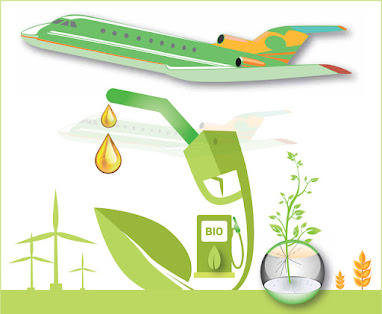The undeniable allure of air travel – the ability to explore distant lands, reconnect with loved ones, and experience diverse cultures – often comes at a cost: environmental impact. Airplanes are significant contributors to greenhouse gas emissions, particularly carbon dioxide, raising concerns about the long-term sustainability of this mode of transportation. However, a promising solution is taking flight – Sustainable Aviation Fuel (SAF). This innovative fuel source offers a path towards a greener future for air travel.
Understanding SAF: A Fuel Revolution
Unlike conventional jet fuel, a petroleum-derived product, SAF is a revolutionary alternative produced from renewable sources. These sources can include:
- Plant Oils: Crops like jatropha and rapeseed can be processed into biofuels suitable for powering airplanes.
- Algae: This fast-growing marine plant holds immense potential as a feedstock for SAF production. Its cultivation requires minimal land and water resources, making it an attractive sustainable option.
- Waste-to-Fuel: Innovative technologies are turning household waste, such as used cooking oil and municipal solid waste, into SAF, offering a valuable solution for waste management and fuel production.
The production process for SAF involves converting these renewable feedstocks into hydrocarbon chains similar to those found in traditional jet fuel. The resulting fuel can be blended with conventional jet fuel at varying ratios, allowing for a seamless integration into existing aircraft infrastructure.
The Power of SAF: Reducing Carbon Footprint
The primary benefit of SAF lies in its ability to significantly reduce the environmental impact of air travel. Studies indicate that SAF can achieve lifecycle carbon emission reductions of up to 80% compared to traditional jet fuel. This translates to cleaner skies, less air pollution, and a more sustainable future for air travel.
Here's a breakdown of the benefits:
- Reduced Greenhouse Gas Emissions: By minimizing reliance on fossil fuels, SAF directly contributes to a decrease in greenhouse gas emissions, particularly carbon dioxide, a major contributor to climate change.
- Improved Air Quality: SAF burns cleaner than traditional jet fuel, leading to a reduction in harmful pollutants like particulate matter and nitrogen oxides. This can improve air quality, especially around airports and in heavily trafficked air corridors.
- Sustainable Resource Management: The use of renewable feedstocks encourages sustainable land-use practices and reduces reliance on dwindling fossil fuel resources.
Challenges and Opportunities: Paving the Way for Wider Adoption
While the potential of SAF is undeniable, some challenges remain. Here's a closer look:
- Production Capacity: Currently, SAF production is limited compared to conventional jet fuel. This limited availability leads to higher costs for SAF compared to its traditional counterpart.
- Infrastructure and Logistics: The infrastructure and logistics required for large-scale production and distribution of SAF need further development to meet the growing demand for sustainable air travel.
- Policy and Incentives: Government support and incentives are crucial for encouraging investment in research, development, and production of SAF. Additionally, policies that encourage the adoption of SAF by airlines, such as tax breaks or carbon offsets, can accelerate its uptake.
However, significant efforts are underway to overcome these challenges. Here are some promising initiatives:
- Increased Investment: Airlines and fuel producers are recognizing the importance of SAF and are collaborating to invest in research, development, and production facilities. This collaboration is crucial for scaling up SAF production and driving down costs.
- Technological Advancements: Research is ongoing to develop more efficient and cost-effective methods for SAF production. These advancements hold the key to making SAF a more competitive alternative to traditional jet fuel.
- Sustainable Practices: The development of dedicated feedstocks specifically for SAF production is underway. This initiative aims to minimize competition with food production and ensure the sustainability of the fuel source.
The Future of Flight: A Collaborative Effort Towards Sustainability
The transition to a more sustainable future for air travel requires a collaborative effort. Airlines, fuel producers, governments, and research institutions all have a role to play.
- Airlines: Airlines can lead the charge by setting ambitious targets for SAF adoption and encouraging passengers to offset their carbon footprint through voluntary contributions.
- Fuel Producers: Fuel producers need to invest in scaling up SAF production, exploring innovative feedstocks, and collaborating with airlines to develop efficient supply chains.
- Governments: Governments can play a vital role by providing financial incentives, such as tax breaks or subsidies, to promote SAF production and adoption. Additionally, implementing carbon pricing mechanisms can create a market force that incentivizes the use of cleaner fuels.




No comments:
Post a Comment